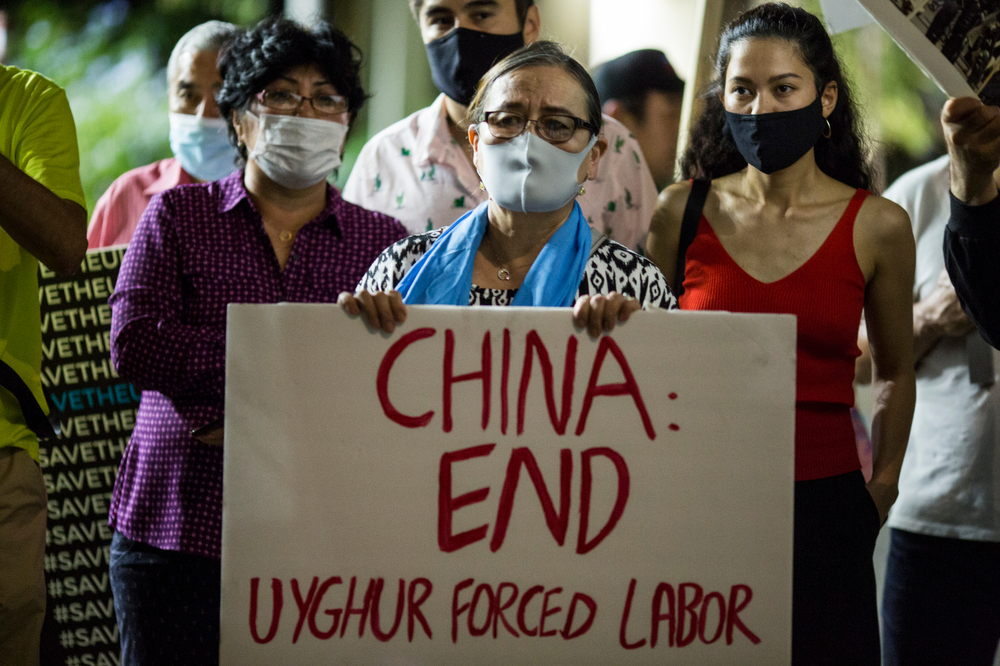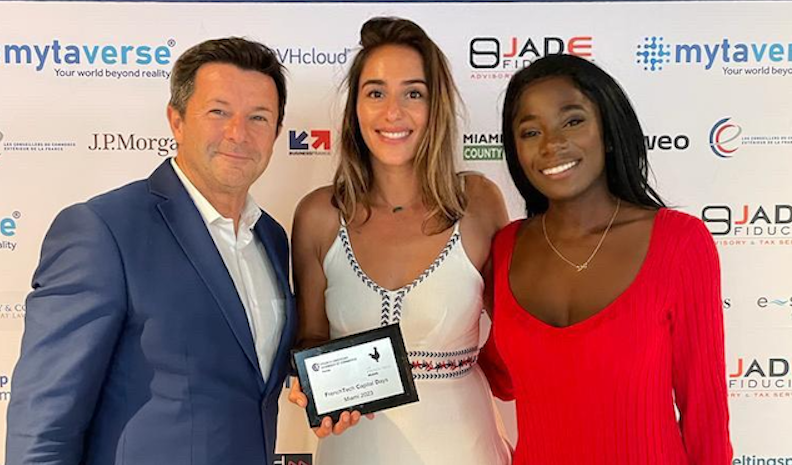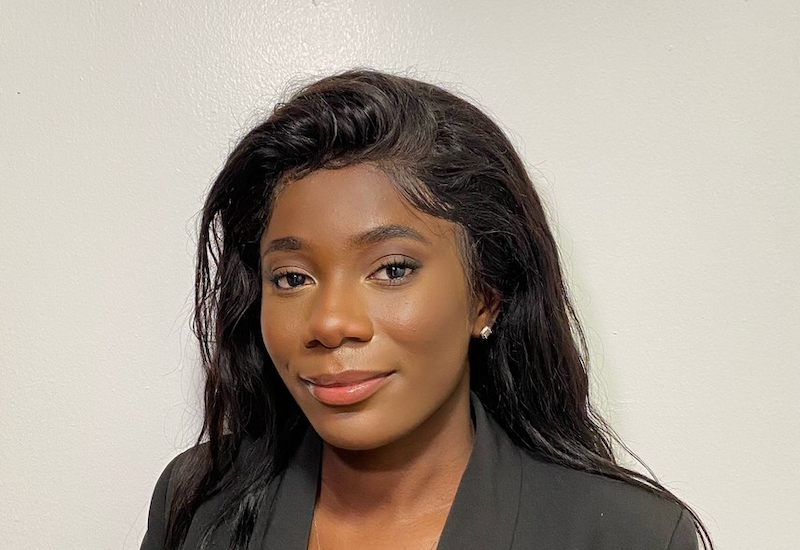The list of brands that have at some point sourced from supply chains using forced labor is endless. According to reports, among the offenders were household names such as Nike, Apple, Amazon, Kraft Heinz Co., Google, Microsoft, Zara, Coca-Cola, and many others.
Miami-based entrepreneur Déborah Wanza knows the issue all too well. She was born in Kinshasa, Congo’s capital, where various armed groups fight for control of cobalt mining and trading.
This metal is an essential component for rechargeable batteries that power our smartphones, tablets, laptops, and electric vehicles.

As much as 75% of the world’s cobalt is mined in Congo, one of the most lawless and dangerous countries on Earth.
In 2023, for the third consecutive year, Congo saw a record number of children abused and exploited by armed groups, the UN reports.
“Millions of kids and women are murdered and raped, and cobalt is the reason,” Déborah said. “Many are forced into mining the metal, and nobody is talking about it.”
Trying to combat these crimes motivated Wanza to create Phloxe, a browser extension that helps consumers find slavery-free products with clean supply chains.
“The idea is not to just talk to the people who know about slavery, but also to those who don’t have information,” she said.
Isn’t slavery in the past?
Modern slavery has grown more commonplace in recent years. According to estimates by the International Labour Organization (ILO), 28 million people around the world are exploited as forced laborers.
One example is the plight of the Uyghurs, an ethnic minority in western China. In 2021 the U.S. Uyghur Forced Labor Prevention Act banned all imports from the country’s Xinjiang region. The only exception is when businesses can prove the supply chain is clean.
A year later an investigation by the UK Sheffield Hallam University found “massive and expanding links” between “every major car brand” and Xinjiang.

Since February, thousands of luxury Porsche, Bentley, and Audi cars have been held in U.S. ports, and buyers have been notified that their delivery has been delayed until the end of March. The reason is an electronic component that’s sourced by an indirect supplier from “western China”, and which could be illegal under U.S. sanctions.
The seafood supply chain is also “notoriously murky”, according to Greenpeace whose recent investigation targeted California-based Bumble Bee, the producer of canned tuna and salmon. The company has been sourcing from ships where fishers work excessive overtime, and are prevented from leaving, with their wages often withheld.
Not just in “foreign lands”
Modern slavery isn’t something happening only in “faraway countries”. A recent investigation by the Associated Press found that millions of dollars worth of agricultural products are produced by U.S. prisoners for the supply chains of food giants, such as McDonald’s, Walmart, and Cargill.
Nationwide, American inmates are often forced to work for pennies an hour or nothing at all. If they refuse, this can jeopardize their chances of parole or even face disciplinary action.
Forced prison labor feeds the supply chains of most American kitchens, from Frosted Flakes cereal and Ball Park hot dogs to Coca-Cola and Riceland rice. According to AP, these products are on the shelves of virtually every supermarket in the country, including Kroger, Target, Aldi and Whole Foods.
This, however, is completely legal under U.S. law: slavery and forced labor are banned except as punishment for a crime.
How to fight slavery on a zero budget
When she was six years old, Déborah Wanza left Congo and moved to France with her family. She wanted to work in HR and took a Master’s degree in social law, but she didn’t feel like she belonged.
“They made comments on my natural black hair,” Wanza said. “One teacher said I should change it. She had the reputation of being racist but other people defended her because ‘she didn’t mean it in a bad way’.”
Then her friend went to the U.S. on an exchange program, and Wanza decided to join her, eventually going on to study business management at Georgetown University and to learn to code.
“My budget was limited to around $800 per month, but I wanted to buy things that corresponded to my ethics,” Wanza said, adding that’s how her idea of a search engine which understands ethics emerged.
“The husband of my teacher at Georgetown was a coder. I shared my vision with him. He was a bit reluctant at first, but eventually jumped on board.”

During the COVID lockdown Wanza suddenly had the time to focus on her project. She named the engine Phloxe (with a French “e” for a feminine touch) to honor the memory of George Floyd. “I wanted to bring people together, and flowers are associated with happiness,” Wanza said.
To develop her project, Wanza has already raised $50K from friends and is now closing a $2 million seed round. “I’m looking for women investors because we understand each other,” she said.
Incorporated in Miami, Phloxe is generating revenue through subscriptions, providing personal assistance to golden members. The startup is using AI to give simple recommendations, such as the best time to shop.
The engine gathers information from open sources, such as supplier lists and user reports. Phloxe can also analyze if companies are recycling and creating a second life for their products.
“We’re also looking to develop our own AI to give better recommendations,” Wanza said. “When we change consumer behavior the approaches that brands use to source from their supply chains will also shift.”








